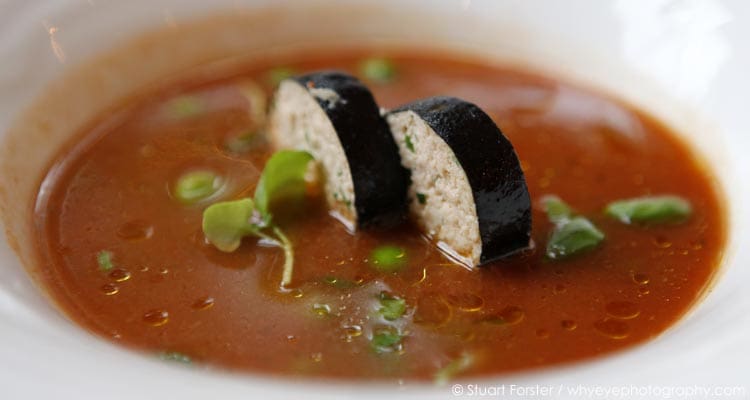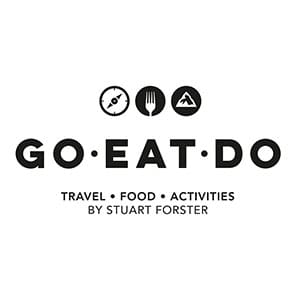Stuart Forster looks at high-protein meat-free products developed by The Vegetarian Butcher in the Netherlands as an alternative to conventional meat products.
While dining at the Carlton Ambassador hotel, in the Dutch city of The Hague, I was served a gourmet meal prepared using products from The Vegetarian Butcher. The experience proved thought-provoking and I felt compelled to look in more depth into the food that I’d been just been served.
On passing The Vegetarian Butcher’s concept store, in the centre of The Hague, you could be forgiven for thinking you are outside of a traditional butcher’s shop. The products sold inside look and even taste like meat and fish, yet not a single animal has been slaughtered to produce them.
Recognition for marketing and innovation
The business is the brainchild of Jaap Korteweg. It aims to provide meat lovers with an opportunity to reduce their intake of animal flesh without forsaking their favourite dishes. The concept has gained in popularity rapidly and, in 2013, The Vegetarian Butcher was a finalist in the Netherlands Institute of Marketing Awards and the Accenture Innovation Awards.
“From one butcher shop, in September 2010, we grew to a brand that is represented in over 600 stores throughout the Netherlands and with resellers and franchisees in Belgium, Luxembourg, Germany, Portugal and Finland. We expect the turnover over the year 2013 to be €3 million,” says Armanda Govers, the company’s marketing and communications manager.
Average meat consumption per person
Statistics made available by the Food and Agriculture Organization of the United Nations show that, on average, each Dutch person ate 85.5 kilograms (188.5 pounds) of meat in 2009 compared with 56.9 kilograms (125.5 pounds) in 1969.
Recent studies suggest that reducing the consumption of processed meats brings significant health benefits. Some go as far as suggesting that, on average, vegetarians live up to ten years longer than meat eaters and have a 32 per cent lower likelihood of developing heart disease. In recognition of the company’s efforts in this area, The Vegetarian Butcher was awarded the 2011 Triodos Heart Prize.
Intensive animal farming
Intensive farming techniques used to produce much of today’s low-cost meat impact on the environment. So much so that estimates suggest vegetarians’ carbon footprints are 30 per cent lower than meat eaters.
“You need five kilos of soy to put in an animal to get one kilo of beef. From one kilo of soy we make 2.5 kilograms (5.5 pounds) of our meat with the same nutrition,” explains Paul Bom.
A trained chef, Paul is now the product innovation manager at The Vegetarian Butcher. He points out that his company’s products require only five per cent of the water needed to produce the same quantity of food.
Product development ‘meatings’?
“We are a company that makes and sells vegetarian meat. We have vegetarian products – faux meat – and we call it vegetarian meat. A lot of products we offer are similar to real meat,” explains Bom, who has played a role in developing the likes of fish-free tuna, smoked bacon strips and vegetarian chicken chunks.
Reports even state that Ferran Adrià and his team from El Bulli restaurant thought they were dining on chicken thigh while eating The Vegetarian Butcher’s chicken alternative, NoChicken Chunks. “We make it from the protein out of lupin, soy and wheat…We put a lot of good flavour on and it’s all-natural, of course. It’s a different vision in development. It’s really made by restaurant chefs, like me, I’m a restaurant chef and not a developer per se,” explains Bom.
Positive customer feedback
“The customer feedback is 99.99 per cent positive. They are glad we are finally here. Well, of course, it sounds a bit hmmm when you talk about yourself,” jokes Bom, suggesting a reluctance to sing his own praise, ”but they like everything we have developed. They want more, more, more.”
Typical Dutch dishes such as Bitterballen (Dutch meatballs), an appetiser that’s traditionally served with mustard, and Kroketten (Dutch croquettes), the breadcrumb-covered snack that you’ll find being served in fast food stores across the country, have been added to the company’s range of products. So too have dishes from further afield, including vegetarian chicken teriyaki and marinated shawarma strips.
With interest in alternative sources of protein growing, it looks as if the Vegetarian Butcher has established effective branding at just the right time.
Meat from the lab
In August 2013 a team of scientists from Maastricht University, led by Professor Mark Post, made global headlines when they attended a press conference in London and cooked a burger made from lab-grown meat. Yet not all foodies regarded the event as a positive development.
Nonetheless, JWT Intelligence, the marketing and communications agency that provides analysis of global trends, has reported that the consumption of meat substitutes is likely to rise in the years ahead for a combination of environmental, health and budgetary reasons. The Vegetarian Butcher’s future appears to be bright.
Further information
Visit The Vegetarian Butcher website to find out more about the company’s story and see its meat-free product range.
The Carlton Ambassador is a 4-star boutique hotel and was named Europe’s Best Luxury City Hotel at the 2013 World Luxury Hotel Awards.
The Hague and Holland Tourism visitor information websites have information about things to do and see in the city.
Stuart Forster, the author of this post, has been named Journalist of the Year three times at the Netherlands Press Awards. He regularly enjoys eating vegetarian food.
Thank you for visiting Go Eat Do and reading this post about The Vegetarian Butcher meat-free products. Read the A to Z of reasons to visit the Netherlands to find Dutch things to do and see.
Photos illustrating this post are by Why Eye Photography.
If you enjoyed this post why not sign up for the free Go Eat Do newsletter? It’s a hassle-free way of getting links to posts on a monthly basis.
‘Like’ the Go Eat Do Facebook page to see more photos and content.




